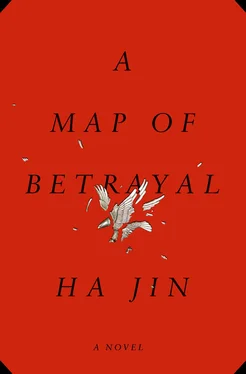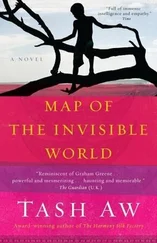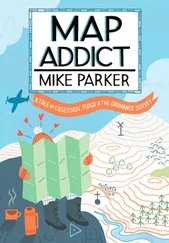Gary took all the cash, six thousand dollars, out of his Hang Seng bank account. When he came back to the States, he told Nellie that he now had the down-payment money for a house — his cousin had just repaid an old debt. In the past she had often chafed at his taking a vacation alone in Asia and once said, “I know you’ll chase some pussy there.” But this time, Nellie deduced that he hadn’t seen any woman, otherwise he couldn’t have come back loaded with cash, plus two fine silk dresses for her. Nellie felt relieved. Before long they started house hunting.

My seminar on Asian American history was over at the beginning of June, the grad students left alone to write their final papers, but my undergrad class continued. These days the campus was tense because the anniversary of the Tiananmen Square incident was approaching. The Party cadres had been attending meetings to make plans for keeping order and peace at the college. Like elsewhere in China, every department of the school had two lines of leadership, one of the Party and the other of the administration. The real power was the Party secretary, sometimes called “chancellor” in foreigners’ presence because the word “secretary” had a negative ring, whereas the department’s chairperson was more like a manager who had to report to the Party boss. With few exceptions, the administrative heads were also Party members, so the Party controlled everything. A number of my Chinese colleagues told me that they had just received phone calls from the police, who warned them about June 4: on that day they mustn’t speak publicly, mustn’t hold any gathering larger than six people, mustn’t wear black armbands or white clothes, and mustn’t take to the streets. One old professor was so annoyed by a midnight phone call that he joked, “Hell, I shall go out in the raw on that day.”
On June 2, the president of a communications college in Beijing, Professor Wei Fang, came to give a talk. He was an authority on cyberspace control. A technocrat, he held a number of patents on Internet policing devices. Out of curiosity I went to his talk; the topic was “Managing China’s Cyberspace.” The auditorium was filled almost to capacity, with about six hundred attendees. A vice president of our college introduced Professor Fang, saying the man was a pioneer in China’s Internet technology, revered as a founding father of the Great Firewall. Then Fang, a potbellied man with wire-rimmed glasses, lurched to his feet and waddled to the podium. He opened a yellow folder and started his speech with a long preamble, his head bobbing up and down.
A smile played on his pudgy face while his beady eyes almost disappeared. He was small-boned but heavy-fleshed. His hair, dyed raven black, was so lustrously gelled that it might have been too slippery for a fly to land on. “Dear students and comrades,” he said in a jubilant voice, “I am here today to reminiscence about the arduous process of protecting our national sovereignty in cyberspace. In addition to talking about the great feats and ingenuity my colleagues performed, I would like to share with you our experiences — our glory, frustration, and gratification — in serving our motherland. We all know that the Internet has never been a neutral space like the high seas. Numerous foreign powers hostile to China have been utilizing the new technology to penetrate our communications systems so as to disseminate rumors, incite civil unrest, sabotage our Party’s leadership, and undermine the foundation of our socialist country. The Internet is a new weapon used by international reactionaries, so we must seize it and fight back with it.
“As early as 1992, the Party Central Committee, wise and prescient, assembled a group of more than twenty experts to deliberate about the dangers that might arise from the Internet and to search for ways to regulate its use and monitor the traffic online. Truth be told, I am still amazed by how astute our national leaders were. As time goes by, the advantages of our Internet supervision system grow more and more conspicuous. Some of you might be aware of what has been happening in Russia, where the government hasn’t implemented any online intervention at all, and as a result, any skilled blogger or Facebook user can start a public gathering easily—”
“Get offstage!” a male voice cried from the audience.
“Shut your stinking trap!” another called out.
A sneaker passed the speaker’s head. Another one hit his chest and stunned him.
“Shame on you!” a few voices bellowed together.
“Running dog, get out of here!” a girl yelled.
Some students in the front began throwing eggs at Professor Fang. One hit his flat forehead; instantly his face was streaked with the yolk. He was so shocked that wordlessly he took off his glasses and polished them on the corner of his jacket, their gilt stems flailing. Without the glasses on and with his eyes bugging out a little, he looked ten years older, as if he were in his seventies.
“Give us online freedom!” a voice boomed. Some of the audience repeated the demand in unison.
“Tear down the Internet Berlin Wall!” another man cried. More people roared together.
Two security guards turned up, leapt onto the stage, and whisked the speaker away. The moment Fang appeared in the aisle heading to the back exit, slippers, loafers, sneakers all were hurled at him. A few hit his head and roundish shoulders. Some students raised smartphones to snap photos of him in flight. Shuffling away with the guards, Professor Fang became furious, hollering with one eye closed, “You all will face legal consequences! You’ll be kicked out of college! Damn you, I’ll get back at you!” His voice was booming through the lavalier mike still on his lapel while he waved his hands, giving the audience the finger and for some reason also the victory sign.
“Students, don’t lose your heads!” shouted the vice president of our college. “Don’t put our school to shame!”
“Shameless scumbag!” someone responded.
“Strike down the lackeys!” screamed another.
The minute the speaker vanished beyond the door, the audience began to break up, filing out through different exits. Amazingly, I saw Minmin holding an empty bucket and heading to the platform. I intercepted her and whispered, “Did you plan to bust up the talk beforehand?”
“No, I wasn’t with them at all.” She shook her permed hair. “I’m just going to pick up the shoes so those who threw them can have them back. My friends are setting up a lost-and-found corner in the front lobby.”
“That’s very thoughtful of you,” I said.
She smiled and proceeded toward the front. Then her classmate Hongbin appeared, a smile fanning out across his face and his nostrils dilated. He was the only Party member among the students I knew, and he often challenged me in class discussion. “Serves him right!” he panted. “The shameless toady!”
“You don’t like our guest speaker either?” I asked, a bit nonplussed.
“I hate his guts! Every time my fiancée emails me something interesting from Japan, it’s blocked. That man is my enemy; he’s the enemy of all the netizens in China.”
“We’d better leave,” I reminded him.
Without delay I left the auditorium, afraid of being spotted by the campus police. On the same day the incident became national news across the Internet. Although no student was identified as an egg or shoe thrower, there were all kinds of rewards offered to them online: Nike shoes to be shipped from Amazon, gift cards for bookstores, dozens of Alaska snow crabs, Apple iPads, one-night stands, vacations at beach resorts, porcelain toilets, whole sets of Haruki Murakami’s novels, even girlfriends and boyfriends. It was hard to tell what percentage of the offers was genuine, given that no one could claim any of them.
Читать дальше












